Since 2005, I have been very interested in nuclear fusion. I found my way into the community of brilliant amateur “fusioneers” via Richard Hull and the www.fusor.net site. Richard Hull was a profound influence on my research (and still is) and I enjoyed attending his HEAS gatherings in Richmond, VA for many years. Richard has personally inspired generations of scientists on how to practically perform fusion.
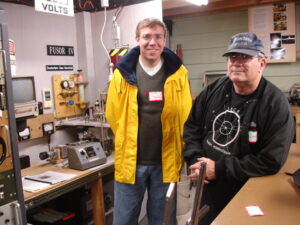
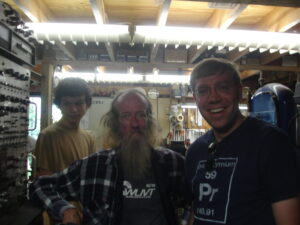
I started my fusion reaction with a huge shortcut: I was fortunate to purchase Joe Zambelli’s first fusor system of of Ebay, and Joe set me up with all of the necessary parts and equipment for me to do my first runs. My first neutron detection work was done with an old “Snoopy” BF3 neutron detector.
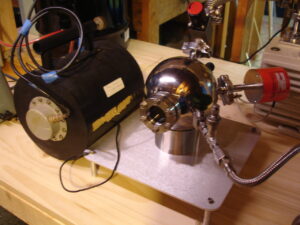
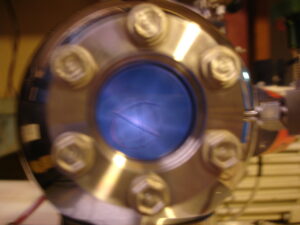
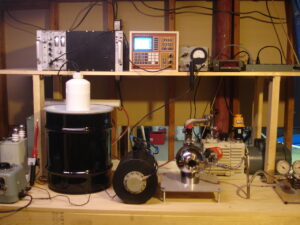
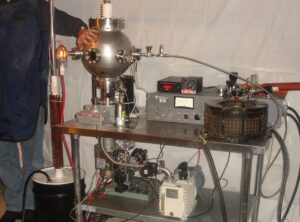
The next step on the research journey was to actually build my own reactor. This reactor was a large 12″ chamber, and I tracked down all of the fittings, built the xray power supply, gas delivery, etc over many months. I installed a pure palladium wire grid. It was “quite a contraption” as Carl Willis put it. See descriptions here. My neutron confirmation was done with BTI Bubble Detectors. Since these detectors fail over time, I invested in a long He3 detector, built my own HDPE moderator, and use a Ludlum scalar, giving much better metrology.
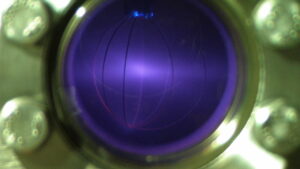

I made the first amateur attempt (as far as we know) at the Deuterium-Helium3 reaction. I was able to get neutrons, but could not confirm the proton. Read more about that experiment here.
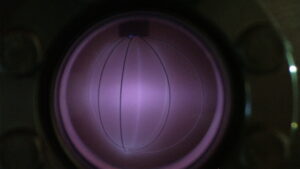

I am honored to be #15 on Richard Hull’s Fusioneer list, in the neutron club! Sometimes my old system shows up in the press as well.
Both of my fusors, He3 counter, NIM crates, MCA live on and are still assembled. I think its time now, in 2023, to take a fresh look at some new ideas. Pyroelectricity anyone? 🙂
